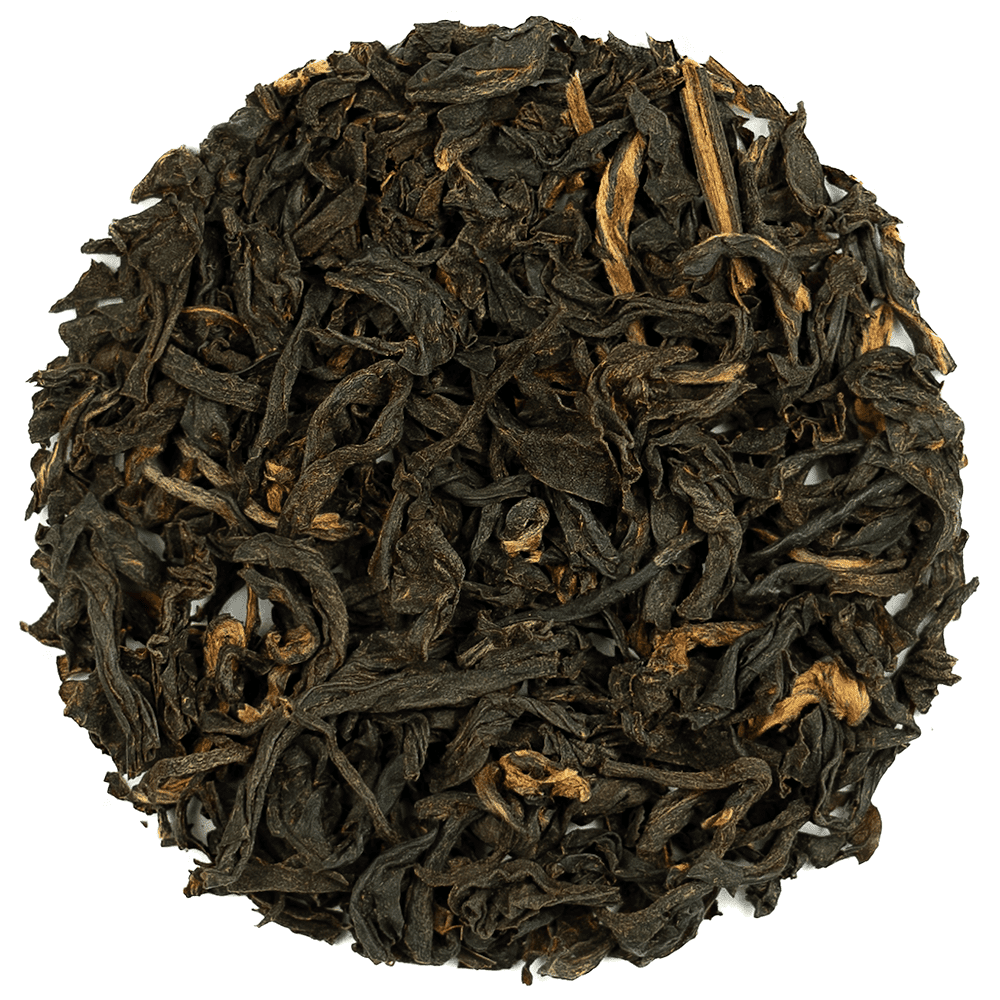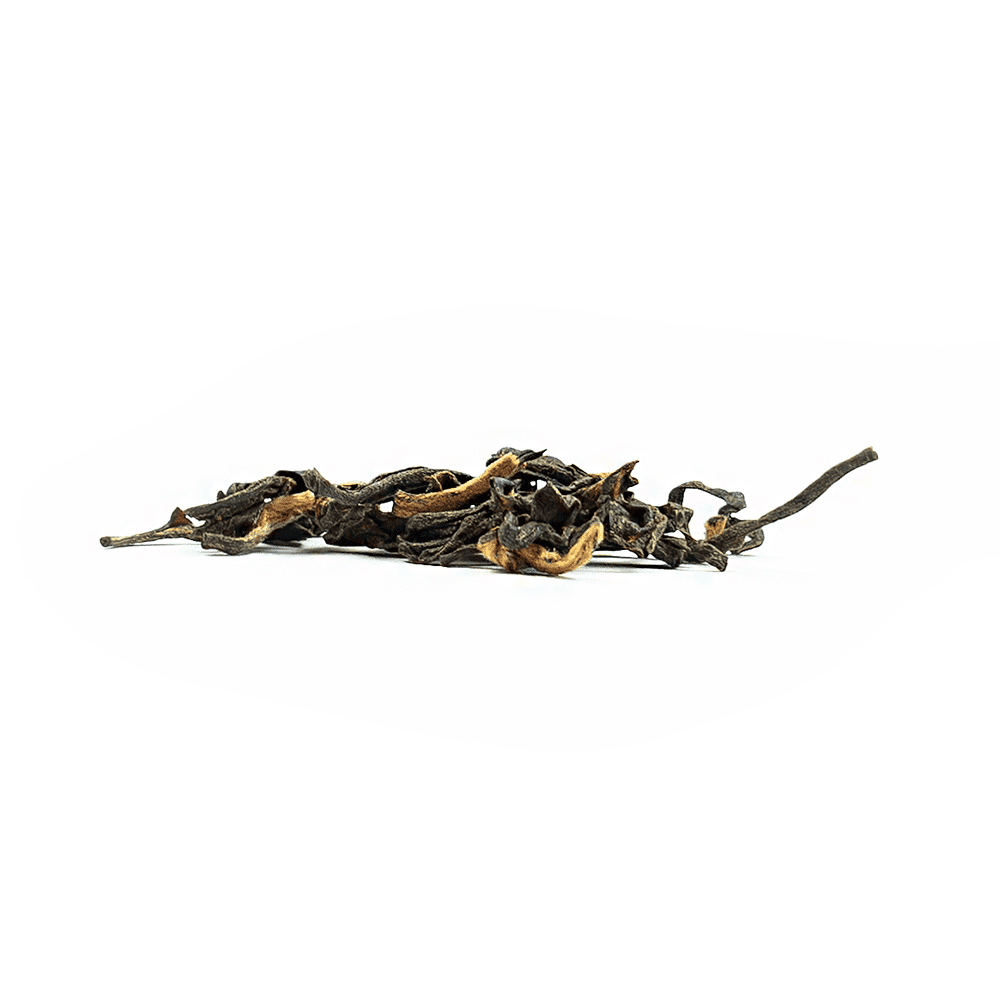Black Tea Brewing Guide
1 Teaspoon
Add 1 teaspoon per person and one for the pot.
95⁰c - 100⁰c
Boil using fresh water, at a temperature of 95⁰ - 100⁰c.
3 - 5 Mins
Steep for 3-5 minutes, depending on personal preference
About Product
-
Product Description
Experience the luxury of Assam Mokalbari Tea FTGFOP1, a connoisseur’s tea for real tea lovers. Plucked from the esteemed Mokalbari Estate, this tea is FTGFOP1 (Finest Tippy Golden Flowery Orange Pekoe) grade, meaning the top leaves with golden tips.
Famed for its strong, malty flavour and deep amber liquor, this Assam Tea is a hearty brew for morning or afternoon indulgence. Perfect on its own or with milk, whichever you prefer. Enjoy the craftsmanship of premium Assam in every sip.
Mokalbari Tea Estate
Located on the southern bank of the Brahmaputra River in Upper Assam, India, the Mokalbari Tea Estate is a renowned tea garden. The name Mokalbari has a history and botanical significance. MOKAL means a type of tall bamboo, which is 12 inches or more in diameter, and BARI means a garden or a place. Together they mean “a garden of thick and tall bamboo trees” and is a testament to the estate’s connection to nature and heritage.
The location of the Mokalbari Tea Estate is strategic. The Brahmaputra River, which originates from the glacier near Lake Mansarovar in Tibet, deposits nutrient rich sandy loam soil on its southern banks as it flows down. This soil is perfect for tea cultivation. The planters who established the estate recognised this potential, and that’s why it has grown into one of the largest tea gardens in the world.
Mokalbari Tea Estate has 1,022.03 hectares of planted area and produces around 2 million kgs of tea every year. It has a workforce of 1,600 workers and produces both CTC (Crush, Tear, Curl) and Orthodox teas.With 2 factories, the estate can produce up to 2.5 million kgs of premium tea to meet global demand and quality standards. Mokalbari Tea Estate is where nature, human resources and centuries of tea making tradition come together.
History of Mokalbari Tea Estate
Nestled in the lush plains of Assam, India, the Mokalbari Tea Estate boasts a rich history that dates back to the golden era of tea plantations in the region. Established in the late 19th century, it was founded by innovative British planters who played a pivotal role in transforming Assam into a global tea production hub.
The estate’s journey began in 1876 when British entrepreneur Robert Brown recognised Assam’s ideal climate and fertile soil for cultivating premium tea. Under his leadership, Mokalbari swiftly expanded and earned a reputation for producing some of the finest teas.
Over the years, the Mokalbari Tea Estate has undergone several transitions, from British colonial ownership to Indian proprietors after independence, while steadfastly upholding its commitment to quality and innovation.
Generations of tea farmers and workers have contributed to its illustrious legacy, which stands as a tribute to Assam’s enduring tea-making traditions. Today, Mokalbari Tea Estate is celebrated globally as one of the most prestigious names in the tea industry, renowned for its unique flavours and unwavering dedication to excellence.
How to Brew Assam Mokalbari Tea
Crafting the perfect cup of Assam Mokalbari Tea FTGFOP1 is an art that accentuates its robust and spicy flavour, rich malty character, and abundance of golden tips. Follow these easy steps to enjoy an exquisite cup:
- Measure the Tea: Use approximately one teaspoon of Assam Mokalbari East loose leaf tea per cup. You can adjust the amount based on your preference for a stronger or milder brew.
- Boil the Water: Bring fresh, filtered water to a rolling boil, around 200-212°F (93-100°C). The high temperature is crucial for releasing the tea’s bold and malty essence.
- Steep the Tea: Pour the boiling water over the tea leaves in a teapot or infuser. Allow it to steep for 3-5 minutes. A shorter steeping time yields a lighter taste, while a longer one enhances the flavour.
- Strain and Serve: Once steeped to your liking, strain the tea leaves and pour the tea into a cup. It can be enjoyed plain to savour its natural flavours, or with milk and sugar for a richer experience.
- Optional Additions: Enhance the tea’s taste by adding a dash of rock sugar or a splash of milk, depending on your preference. Some tea lovers also enjoy it with a hint of spice.
Tasting Notes for Assam Mokalbari Tea
Assam Mokalbari Tea FTGFOP1 is a single estate tea that’s a real showstopper. When you brew it, it gives you a stunning amber coloured liquor that’s just gorgeous to look at.
Aroma: The aroma is strong and seductive with a spicy scent that hints at the complexity of the tea. Malt and earthy notes with a hint of sweet florals.
Flavour: The first sip is bold and full bodied with a good old fashioned Assam malty taste. Balanced by a strong and spicy flavour that lingers on the palate. The golden tips add a bit of sweetness to the whole experience.
Mouthfeel: The tea is smooth and velvety and a pleasure to drink. Medium to full bodied, warm and rich.
Finish: The finish is long and resonant with the malty and spicy notes giving way to a gentle sweetness. It’s an invitation to take another sip and this is a great tea for those who like a tea with depth.
You can drink Assam Mokalbari Tea on its own to appreciate the natural flavours, or with milk and sugar for a creamier sweeter cup. Morning or afternoon this is a lovely cup to indulge in and take a journey through the Assam tea gardens.
Conclusion
Assam Mokalbari Tea FTGFOP1 is a testament to the rich tea-making heritage of Assam, offering an exceptional experience for tea enthusiasts around the world. Its strong and spicy flavour, combined with a rich malty character, makes it a standout choice among quality teas. Sourced from the esteemed Mokalbari Tea Estate, this single estate tea embodies the dedication to excellence and tradition that defines the top Assam tea plantations.
Whether you prefer your tea plain to savour its natural flavours, or with a touch of milk and sugar for a richer experience, Assam Mokalbari Tea FTGFOP1 promises to delight the senses. With its extensive range of aromas and flavours, this tea is a perfect reflection of the classical Assam tea experience.
Purchase this outstanding tea and enjoy a cup that not only pleases the palate, but also connects you to the lush tea gardens of Assam.
-
Delivery Information
We offer reliable delivery services through Royal Mail to ensure that your orders reach you on time.
Here are the main points you should be aware of:
- Standard UK Delivery: £3.95 excluding delivery charge.
- Delivery Times: Orders are processed and dispatched within 2-5 working days but they may take longer during busy times. It is worth noting that all our orders are packed by hand in order to maintain the quality.
- Free Delivery: We are delighted to provide free shipping for UK orders over £35*. Moreover, customers from Europe can enjoy free shipping for any purchase above €75*. Furthermore, we offer free delivery in the USA for all purchases exceeding $125*. Please note terms and conditions may apply.
- Tracking: When your package is sent you will receive a tracking number via email so as to keep tabs of its progress.
International Shipping
We do ship worldwide meaning our products can be accessed by anyone around the world.
Here are some important details:
- Delivery Times: International deliveries vary based on destination, generally taking between 7-14 working days.
- Shipping Costs: International shipping costs are calculated at checkout based on your location and weight of your order. View full delivery charges for your location.
- Customs and Import Duties: Remember customs or import duties may exist depending on regulations in your country; these charges are borne by the customer.
Returns Policy
Your satisfaction is our top priority, however if for any reasons you’re not completely happy with your purchase, simply follow our returns procedure:
- Eligibility: Items returned within 30 days of receipt must remain unopened and in their original condition.
- Process: In order to return an item contact our customer service department using your unique order number after which detailed instructions will be given concerning returning them back to us securely.
- Refunds: Our aim is to refund you within 5-7 working days upon successful reception of returned goods. The refund amount will be credited to your original payment method.
For any other Enquiries or help please contact our Customer Support Team always at your service.
-
Product Reviews



